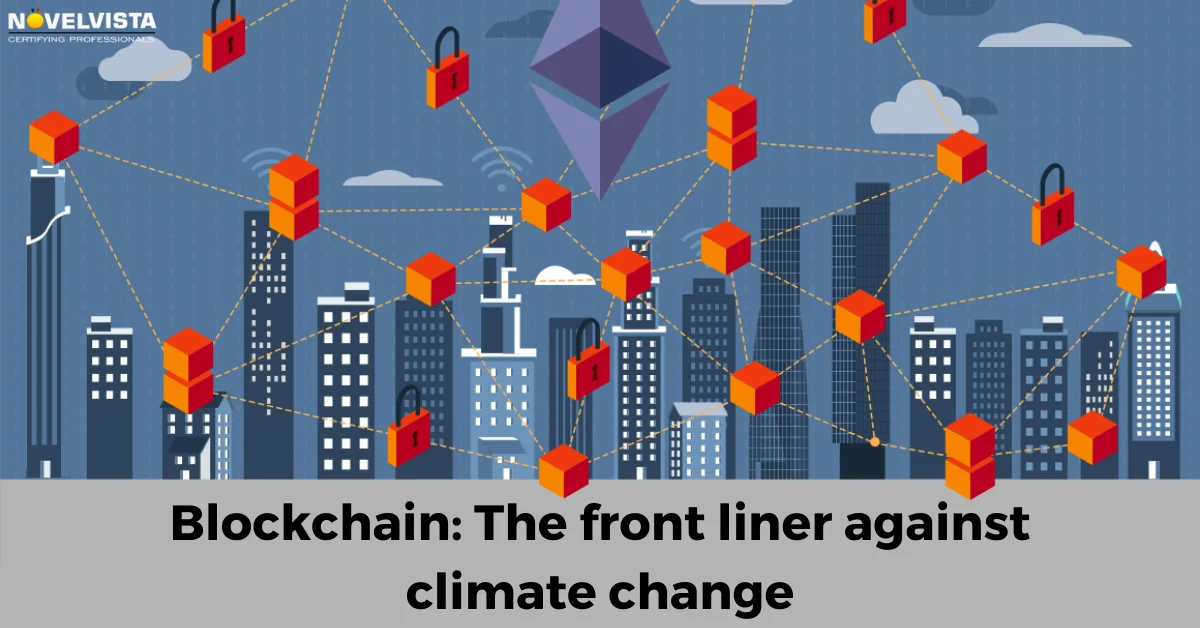Enroll Now and Get Upto 30% Off
* Your personal details are for internal use only and will remain confidential.

Last updated 23/07/2021

Blockchain technology gives the "wonderful answer" to probably the most squeezing natural issues looked at by our planet today, however development in the open-source world might be moving excessively fast for state-represented business sectors to stay aware of, said Stefan Rust, the previous CEO of Bitcoin.com.
“There’s the voluntary market and then there’s the governed market,” Rust said, in a video interview with Forkast.News. “The governed market is really going to struggle with keeping up the pace of this industry.”
Article 6 of the Paris Agreement — which empowers countries around the globe to exchange discharge decreases — presently can't seem to be settled upon as the Covid-19 flare-up prompted the deferment of the 26th meeting of the Conference of the Parties (COP26) that was at first booked to occur in November 2020. The meeting has now been rescheduled to November 2021.
While the ongoing reciprocal understanding among Peru and Switzerland to lessen ozone-depleting substance outflows may have launched the worldwide exchange of moderation results (ITMO) as point by point in Article 6, the private area has been pushing forward all alone to lead willful endeavors to decrease worldwide carbon emanations.
Tech leader Microsoft plans to be carbon-negative by 2030, while rival Apple has additionally dedicated to arriving at 100% carbon impartiality for its graceful chain and items by 2030.
In the digital currency world, installment stage Ripple additionally as of late vowed to be "carbon net-zero" by 2030.
“We believe there’s an enterprise element,” Rust said. “You’re seeing that chain happening in the enterprise space and that demand is going to result in the adoption of these voluntary carbon credits.”
Blockchain, Rust added, could likewise be a strong weapon for engaging ecological, social and administration (ESG) issues in different ways. He calls attention to that it is more productive for the digital currency industry to be carbon proficient.
Blockchain technology provides the “perfect answer” to some of the most pressing environmental issues faced by our planet today, but innovation in the open-source world may be moving too quickly for state-governed markets to keep up with, said Stefan Rust, the former CEO of Bitcoin
“There’s the voluntary market and then there’s the governed market,” said Rust, now the CEO of Sonic Capital, in a video interview with Forkast.News. “The governed market is really going to struggle with keeping up the pace of this industry.”
Article 6 of the Paris Agreement — which enables nations around the world to trade emission reductions — has yet to be agreed upon as the Covid-19 outbreak led to the postponement of the 26th session of the Conference of the Parties (COP26) that was initially scheduled to take place in November 2020. The session has now been rescheduled to November 2021.
While the recent bilateral agreement between Peru and Switzerland to reduce greenhouse gas emissions may have kickstarted the international transfer of mitigation outcomes (ITMO) as detailed in Article 6, the private sector has been moving ahead on its own to lead voluntary efforts to reduce global carbon emissions.
Tech giant Microsoft plans to be carbon-negative by 2030, while rival Apple has also committed to reach 100% carbon neutrality for its supply chain and products by 2030.
In the cryptocurrency world, payment platform Ripple also recently pledged to be “carbon net-zero” by 2030.
“We believe there’s an enterprise element,” Rust said. “You’re seeing that chain happening in the enterprise space and that demand is going to result in the adoption of these voluntary carbon credits.”
Blockchain, Rust added, could also be a potent weapon for battling environmental, social, and governance (ESG) issues in other ways. He points out that it is more profitable for the cryptocurrency industry to be carbon efficient.
“There have been a number of reports on Google that have identified the sources of that electricity for the proof-of-work mining, is generally from underutilized electricity, e.g. electricity that’s being generated and not pumped into the grid,” Rust said. “[Miners are] using water where it’s cold and where nobody else goes.”
Blockchain innovation and tokenization are likewise empowering organizations like Sonic Capital to offer assets with lower venture essentials — which thus might be more moderate for millennials and Gen Z speculators keen on placing their cash into ESG causes.
“So people with a lower appetite, they don’t want to put in ten million dollars, they can put in five thousand dollars — that’s the minimum investment,” Rust stated. “We can now facilitate that, thanks to the blockchain and it being tokenized, our cost of maintaining a fund, providing all the transparency, the disclosures, the onboarding, all of that is far more cost-effective.”
As per an ongoing report, 90% of reviewed Gen Zers accept organizations must act to help ESG issues while 75% do research to guarantee an organization finishes its guarantees.
Watch Rust's discussion with Forkast. News Editor-in-Chief Angie Lau to hear more about how the tokenization of speculations can help debilitate agitators in the carbon credit market and how speculators can bring in cash from sparing the planet.
NovelVista Learning Solutions is a professionally managed training organization with specialization in certification courses. The core management team consists of highly qualified professionals with vast industry experience. NovelVista is an Accredited Training Organization (ATO) to conduct all levels of ITIL Courses. We also conduct training on DevOps, AWS Solution Architect associate, Prince2, MSP, CSM, Cloud Computing, Apache Hadoop, Six Sigma, ISO 20000/27000 & Agile Methodologies.
* Your personal details are for internal use only and will remain confidential.